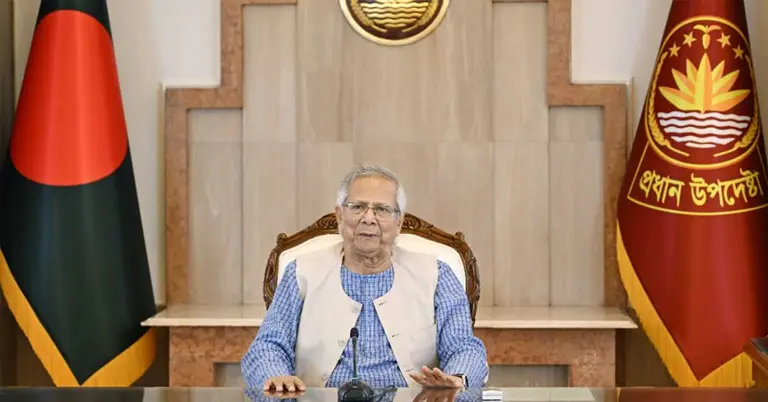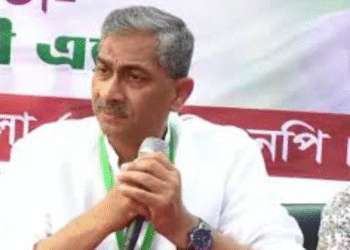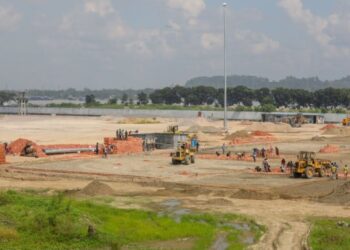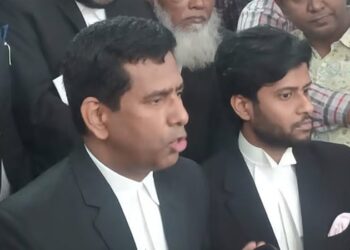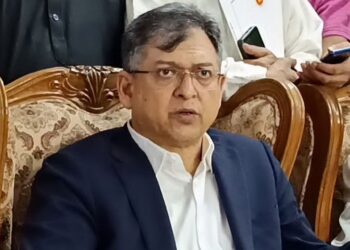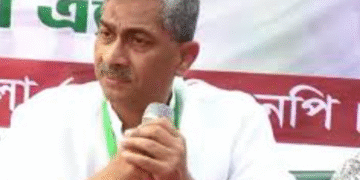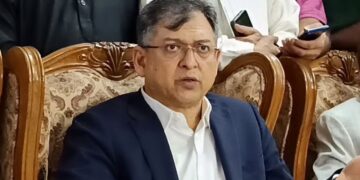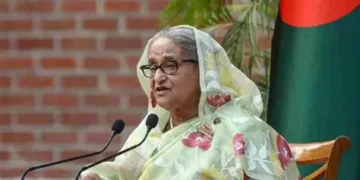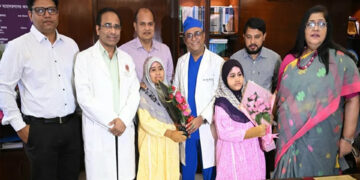Highlights
-
Interim Chief Adviser Dr. Muhammad Yunus delivered a televised national. Announced that the national referendum on the July National Charter 2025 will coincide with the February national election.
-
The July Charter includes 30 major constitutional reform proposals agreed upon by political parties through the National Consensus Commission.
-
Dr. Yunus emphasized that the reforms aim to establish a two-chamber parliament, limit the Prime Minister’s tenure, enhance women’s representation, and ensure judicial independence.
-
He reaffirmed that Bangladesh’s economy is rebounding, with record growth in foreign direct investment (FDI) and banking sector recovery.
-
The Chief Adviser urged all political forces to uphold national unity, tolerance, and the spirit of the July Uprising of 2024.
An Address to the Nation: “We Stand at a Defining Moment”
বিসমিল্লাহির রহমানের রহিম প্রিয় দেশবাসী, শিশু, কিশোর-কিশোরী, তরুণ-তরুণী, ছাত্র-ছাত্রী, নারী-পুরুষ, নবীন-প্রবীণ সবাইকে আমার সালাম জানাচ্ছি।
Translation: Bismillahir Rahmanir Rahim.
“Dear countrymen — children, youth, students, women, men, and elders I extend my greetings. Assalamu Alaikum.”
With these words, Dr. Muhammad Yunus, the Chief Adviser of the interim government, began his national address, broadcast live on BTV, BTV World, and BTV News on Thursday afternoon. His tone was solemn yet hopeful, a reminder of both the struggles and aspirations that have shaped Bangladesh since the historic July Uprising of 2024.
Reflecting on the Revolution: Justice, Reform, and Transition
Dr. Yunus recalled how, after the July Uprising, Bangladesh formed an interim government to rebuild the state on the principles of justice and accountability.
আমাদের সরকারের ওপর ন্যস্ত দায়িত্ব ছিল মূলত তিনটি। হত্যাকাণ্ডের বিচার করা, একটি জবাবদিহিমূলক ও কার্যকর গণতান্ত্রিক ব্যবস্থায় উত্তরণের জন্য প্রয়োজনীয় সংস্কারের আয়োজন করা এবং সুষ্ঠু নির্বাচনের মাধ্যমে নির্বাচিত সরকারের কাছে ক্ষমতা হস্তান্তর করা।
Translation: “Our government was entrusted with three core responsibilities to deliver justice for the killings during the uprising, to introduce essential democratic reforms, and to hand over power to an elected government through free and fair elections.”
He confirmed that international and national tribunals are progressing with trials related to the July killings and enforced disappearances the first such initiative in Bangladesh’s history. The trials, he assured, are reaching their final stages, marking a milestone in the pursuit of justice.
Reform Achievements: From Judiciary to Financial Transparency
In his address, Dr. Yunus highlighted major institutional reforms undertaken by the interim government.
-
Judicial independence and administrative autonomy strengthened.
-
Anti-corruption measures expanded through digitization.
-
Financial sector transparency improved with new regulatory amendments.
-
Institutional capability and e-governance enhanced across ministries.
আমি আনন্দের সঙ্গে আপনাদের জানাতে চাই যে সংস্কারের ক্ষেত্রেও আমরা ব্যাপক অগ্রগতি অর্জন করেছি। অন্তর্বর্তী সরকার নিজ উদ্যোগে বা বিভিন্ন সংস্কার কমিশনের প্রস্তাবের ভিত্তিতে অনেক গুরুত্বপূর্ণ সংস্কারের কাজ সম্পন্ন করেছে। কিছু প্রস্তাবিত সংস্কারের কাজ এখনও চলমান আছে।
অধ্যাদেশের মাধ্যমে বা বিদ্যমান আইন সংশোধন করে বিচার বিভাগের স্বাধীনতা, বিচার ব্যবস্থাপনা, আর্থিক খাতে স্বচ্ছতা, প্রাতিষ্ঠানিক সক্ষমতা বৃদ্ধি, ডিজিটালাইজেশন সম্প্রসারণ ও দুর্নীতি প্রতিরোধে বিভিন্ন সংস্কার সম্পন্ন করা হয়েছে।
ভবিষ্যতে সুশাসনের জন্য এসব সংস্কার বড় ভূমিকা রাখবে বলে আমরা মনে করি। আশা করি, আগামী নির্বাচিত সরকার সংসদে আলাপ-আলোচনার মাধ্যমে এসব সংস্কার গ্রহণ করবে।
Translation:I am pleased to inform you that we have made significant progress in the area of reforms. The interim government, either on its own initiative or based on the recommendations of various reform commissions, has completed many important reform tasks. Some proposed reforms are still in progress.
Through ordinances or amendments to existing laws, reforms have been carried out to ensure the independence of the judiciary, improve judicial administration, enhance transparency in the financial sector, strengthen institutional capacity, expand digitalization, and prevent corruption.
We believe these reforms will play a major role in establishing good governance in the future. I hope the next elected government will adopt these reforms through discussions in Parliament.
National Election and Referendum: February Will Be Historic
Dr. Yunus reaffirmed that Bangladesh’s next general election will take place in the first half of February 2025, and on the same day, the nation will also hold a referendum on the July National Charter.
আমাদের আরেকটি গুরুদায়িত্ব হচ্ছে সুষ্ঠু নির্বাচন অনুষ্ঠান। আমি ঘোষণা করেছি যে আগামী ফেব্রুয়ারির প্রথমার্ধে জাতীয় সংসদ নির্বাচন অনুষ্ঠিত হতে যাচ্ছে। এই নির্বাচন উৎসবমুখর, অংশগ্রহণমূলক ও সুষ্ঠুভাবে অনুষ্ঠানের জন্য আমরা সব প্রস্তুতি গ্রহণ করছি।
Translation:“Another major responsibility of ours is to hold a fair election. I have announced that the national parliamentary election will be held in the first half of February. We are taking all necessary preparations to ensure that this election is festive, participatory, and conducted in a fair manner.”
The referendum question will ask voters whether they agree to the implementation of the July National Charter (Constitutional Reform Order 2025) and its proposed reforms.
Inside the July National Charter 2025
The July Charter drafted by the National Consensus Commission after nine months of dialogue represents an unprecedented democratic collaboration. Political parties that took part in the July Uprising collectively debated and shaped 30 key constitutional reform proposals.
Key Provisions to Be Voted On:
a) During elections, the caretaker government, Election Commission, and other constitutional bodies will be formed according to the July Charter process.
b) A bicameral (two-chamber) parliament will be established. A new Upper House of 100 members will be created based on the proportion of votes received by political parties.
c) The Prime Minister’s term will be limited; women’s representation in Parliament will increase; the Deputy Speaker and Committee Chairpersons will be elected from the opposition. The President’s powers and judicial independence will be expanded.
d) Other reforms mentioned in the Charter will be implemented in accordance with the political commitments of participating parties.
However voters will cast a simple “Yes” or “No” to approve or reject these proposals.
Read More: Bangladeshi Hafeza Humaira Masud Wins First Place in International Quran Competition in Egypt
If the People Say “Yes”
Should the majority vote “Yes,” the newly elected parliament will form a Constitutional Reform Council comprising members of Parliament. The council will have 180 working days to draft and finalize constitutional amendments.
Within 30 working days after completion, the Upper House will be formally constituted marking Bangladesh’s transition toward a restructured democratic framework.
Economic Recovery: “We Have Risen from the Abyss”
Turning to the economy, Dr. Yunus spoke with pride and data-driven optimism.
“অভ্যুত্থানের পর অর্থনীতিকে পতন থেকে রক্ষা করাই ছিল আমাদের সবচেয়ে বড় চ্যালেঞ্জ — এবং আমরা তাতে সফল হয়েছি।”
Translation: “After the uprising, rescuing the economy from collapse was our greatest challenge and we succeeded.”
He detailed significant progress:
-
Exports, foreign investment, and reserves are on a positive trajectory.
-
The banking sector, once plagued by corruption, has regained public trust.
-
Foreign Direct Investment (FDI) rose 19.13% in the first post-uprising year — defying global trends.
A major milestone awaits next week:
The government will sign a $550 million agreement with APM Terminals B.V., a Dutch subsidiary of the Maersk Group, for the Laldia Container Terminal project the largest single European investment in Bangladesh’s history.
তিনি গর্বের সঙ্গে ঘোষণা করেন, “লালদিয়া হবে আমাদের দেশের প্রথম বিশ্বমানের সবুজ বন্দর।”
Translation: “Laldia will be our nation’s first world-class green port,” he announced proudly.
A Call for Political Unity and National Patience
Dr. Yunus warned against divisions among the pro-uprising political forces.
“প্রায় দেড় দশক ধরে আমাদের জনগণ তাদের ভোটাধিকার থেকে বঞ্চিত ছিলেন। আজ তারা সেই অধিকার পুনরুদ্ধার করার জন্য প্রস্তুত। সামান্য মতবিরোধের কারণে আমরা যে ত্যাগের মাধ্যমে অর্জন করেছি, তা নষ্ট করতে দেওয়া যাবে না।”
Translation:“For nearly a decade and a half, our people were denied their right to vote. Today they stand ready to reclaim it. We must not let minor disagreements destroy what we achieved through sacrifice.”
He reminded the nation of the 133 children and hundreds of others who lost their lives during the July Revolution.
“তাদের আত্মত্যাগ আমাদের বাধ্য করে ভিন্ন মতের প্রতি শ্রদ্ধা দেখাতে এবং দলীয় স্বার্থের ঊর্ধ্বে জাতির স্বার্থকে স্থান দিতে। সামান্য বিরোধে জড়িয়ে আমরা যেন তাদের স্মৃতিকে অসম্মান না করি।”
Translation“Their sacrifice demands that we respect different opinions and put the nation above party interests. Let us not dishonor their memory by falling into small quarrels.”
Ending on a deeply emotional and spiritual note, Dr. Yunus envisioned the dawn of a new era.
“আমরা এক নতুন বাংলাদেশের দোরগোড়ায় দাঁড়িয়ে আছি। আমাদের ঐক্য, সহমর্মিতা ও সাহসই গড়ে তুলবে তার ভিত্তি।”
Translation:“We are standing at the gateway to a new Bangladesh. Our unity, compassion, and courage will shape its foundation.”
He concluded:
“মহান আল্লাহ আমাদের সহায় হোন। তিনি যেন আমাদের উত্তম ভবিষ্যতের আশা পূর্ণ করেন। আল্লাহ হাফেজ। সবাইকে ধন্যবাদ।”
Translation:“May Almighty Allah help us. May He fulfill our hope for a better future. Allah Hafez. Thank you, everyone.”
“নিজেই তৈরি করুন নিজের অনলাইন স্টোর — কোনো কোডিং জ্ঞান ছাড়াই!
In his November 13 address, Dr. Muhammad Yunus presented a historic roadmap not only for a free and fair election but also for a comprehensive constitutional transformation. The July National Charter 2025 stands as a symbol of unity among political forces that once faced dictatorship together.
By merging the national election and referendum, Yunus aims to make February 2025 a turning point in Bangladesh’s democratic journey one that redefines governance, revives economic confidence, and honors the memory of those who sacrificed for freedom.
If implemented, the July National Charter could become a blueprint for a reimagined Bangladesh a nation built on justice, accountability, and shared hope.
Source: Jamuna Television
Share via:

